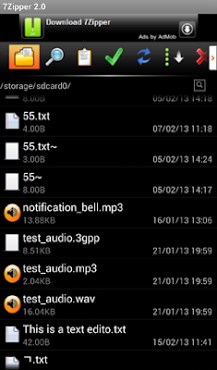by Campbell Smythe | May 5, 2015 | BibleBox
Getting a whole audio NT from a BibleBox typically involves downloading 260 separate files, so it is important to be able to group and compress files for faster download times.
In contexts where a group of users will only have access to the BibleBox signal for some hours, or if they arenꞌt yet highly proficient in downloading files with their phone, like in migrant farm worker housing units in Mexico during evening outreaches, you want to be able to have people download files from your BibleBox as quickly as possible.
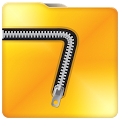
In situations such as this where you are using a BibleBox, zipping audio files into a single Zip file and offering 7Zipper-2 Android app also as a download from your BibleBox will enable much faster download of large numbers of files.
BibleBox users can then download 7Zipper-2 to their mobile device and install it, then download your zipped files.
Once the zipped file download is complete they will be able to uncompress the zip using the 7Zipper-2 app.
Steps:
- Compress your groups of files into a single zip file using 7-Zip or whichever Zip utility you have on your computer.
- Copy the Zipped file across to your BibleBox shared files location.
- Go to http://www.appsapk.com/7zipper-2/ and download the Android app 7Zipper-2
- Place this file also onto your BibleBox USB Shared files folder
Tips:
Once a user has downloaded the 7Zipper-2 app APK file, they will need to install that. Some devices have a default security setting where installing “unknown” apps is not allowed. Make sure this is turned off to enable the installation of 7Zipper-2 onto the device. It can be turned on again after install.
It may also be beneficial to your BibleBox users to have a simple “How to” text document that explains the installation/unzipping process in the BibleBox Shared files folder in their own language.
Thanks to John Edmiston and Allan L for sharing from their BibleBox experience.
by Campbell Smythe | Apr 26, 2015 | BibleBox
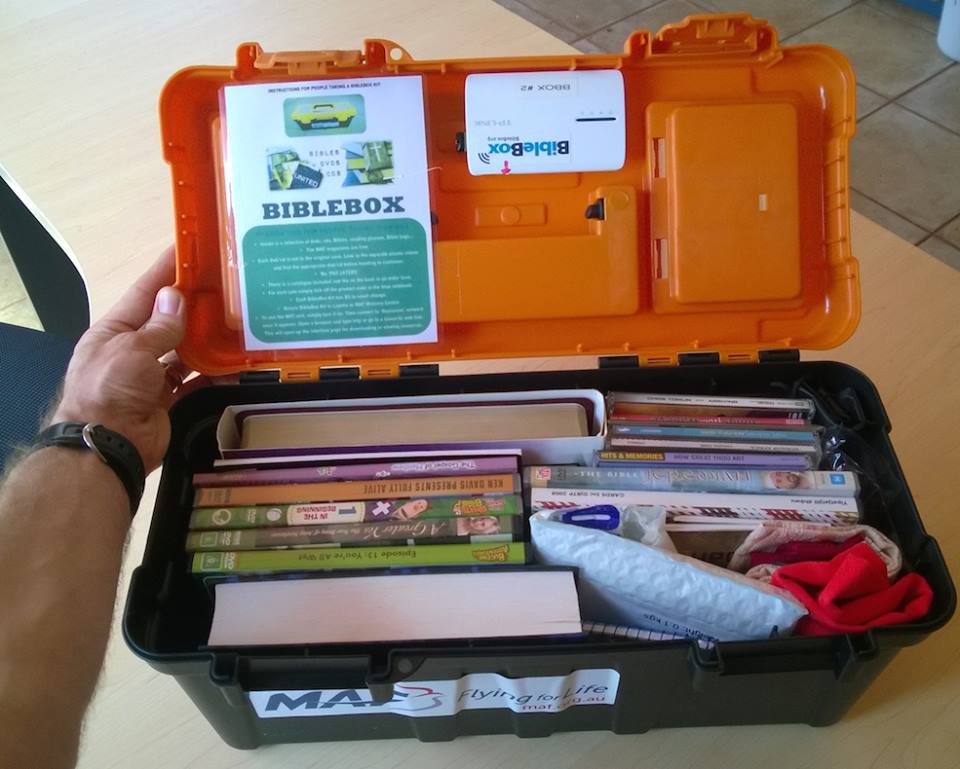
The BibleBox is being used by MAF (Mission Aviation Fellowship) in kits they place with isolated communities across Arnhem Land north Australia.
DVDs, CDs, Bibles and the electronic wifi BibleBox are gathered into one plastic toolbox and sent to isolated communities such as Numbulwar, Gurrumurru and Bremmer. These Bible kits provide opportunities for local people to purchase gospel material or download free digital resources and and access a wifi Bible from the BibleBox, on a wifi enabled device such as a phone, tablet or laptop.
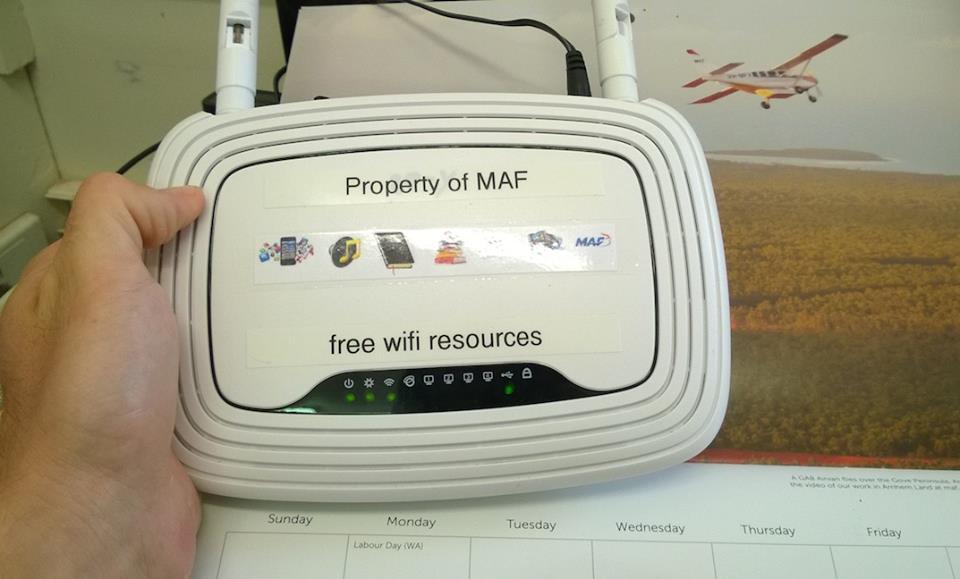
TP Link WR842ND wifi router sharing wifi Bible and resources
MAF Technology Services has also setup a wifi router (above) at the local Yirrkala Aboriginal Church. This router means that people can connect via WIFI to view and download Gospel resources. This latest edition has the ability for people to view the words in Yolngu Matha for some of the songs that are sung on Sundays. Setup on a TP Link WR842ND the router is available 24/7 running off mains electricity at a fixed location, providing access to these resources at a known location for locals.
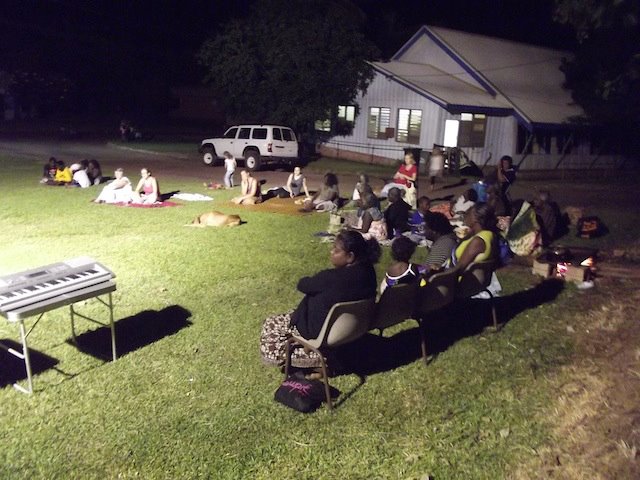
Yirrkala Church – north Australia
Remember these isolated communities dont have Christian bookshops, they dont have internet access – so by providing access to resources like these that we can take for granted in Australia is a fantastic support by MAF.
Donations to support the provision of these Bible resources for MAF are collected here – https://donate.maf.org.au/
by Campbell Smythe | May 2, 2014 | BibleBox
Peter Higham, serving with Mission Aviation Fellowship (MAF) in Arnhem Land, Northern Territory Australia, has started the conversation with pilots and engineers on the viability of running a BibleBox in MAF aircraft during flights to provide inflight access to digital Christian resources.
MAF, a global Christian aviation organisation flys in some of the remotest areas of the planet. MAF pilots choose to do what they do in order to share the Good News of Jesus Christ. Fly AND share the Cross.
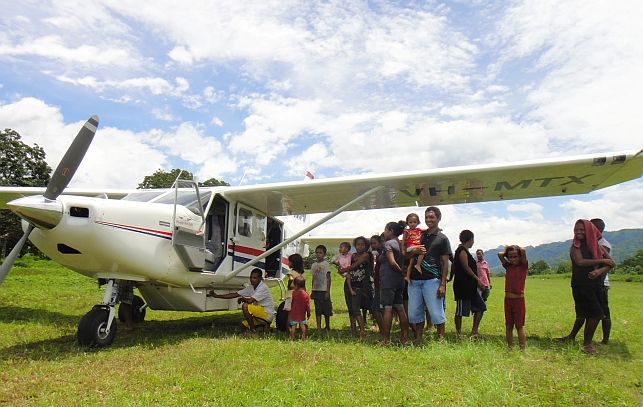
They are researching and exploring the impact of running a BibleBox in the aircraft during flights. Consider the potential here – an MAF aircraft has a BibleBox running making digital resources available over wifi to passengers – who can access the resources on their smartphones, tablets, laptops. Inflight “entertainment”? No, how about “evange-tainment”!
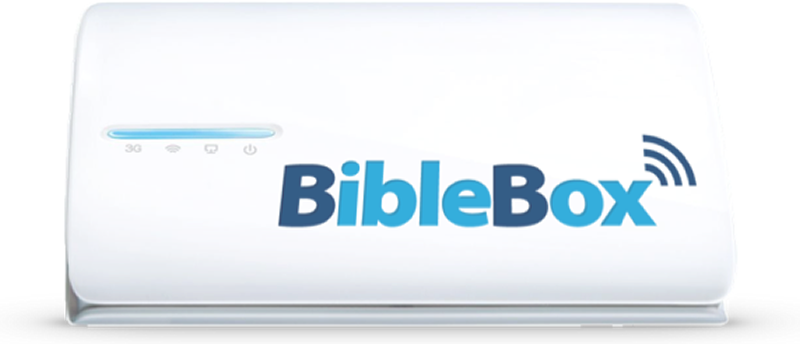
Or maybe the aircraft already has a couple of tablets attached to the seat pockets that passengers can access?
Passengers accessing the BibleBox wifi could be browsing a variety of content – from evangelistic material, Christian video and audio, articles and texts, to information and video about MAF and the work it does around the world. Perhaps reading or listening to the Bible during the flight?
With a battery life of 4-5 hours a BibleBox in a small protective case could deliver resources to passengers for most of the day. If it were plugged into a USB battery pack or even a mobile charging system in the aircraft it would remain charged all day.
The wifi range of the BibleBox is around 25 metres. So if a pilot were to run a BibleBox from their aircraft, resources would also be available to people in the villages once the aircraft landed. “The plane is here and so are some new resources!”
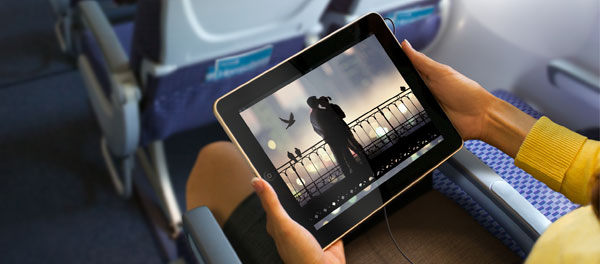
United Airlines delivers inflight entertainment using wifi to devices now – is this initiative of Peter’s an opportunity for MAF to share the Cross in the same manner? This is a great idea and it would be great to see it technically approved and selected by the pilots as a ministry activity they could incorprate into their already busy day.
The BibleBox Project is trying to raise funds to provide 40 BibleBoxes to MAF families around the world. To support or contribute to this project visit FaithLauncher.

by Campbell Smythe | Apr 23, 2014 | BibleBox
The chart below comes from a 2013 survey of 12,424 mobile consumers across 17 countries to gain a deeper understanding of the global trends impacting mobile user behavior in the finance, telecommunications, retail, consumer products, and utilities industries.
Information like this is useful to help us shape our current and future mobile ministry activities.
- Data from Nielsen shows that smartphone penetration varies drastically across different countries in APAC, from 87% in Hong Kong and Singapore down to 15% in the Philippines.
- In ‘Developed Asia’ smartphone penetration is generally higher than in Europe or the US.

- Furthermore, in Southeast Asia alone, smartphone owners spent an average of more than three hours per day on their smartphones in June 2013.
- They spent the most time using chat apps, social networking and entertainment activities like games and multimedia.
Other social media statistics shows 20% of internet users in Indonesia using Twitter and the Philippines as a growing Facebook using nation with 30,214,140 users.
With Indonesia and the Philippines both significant in social media it must only be a matter of time before smartphones become affordable to the masses. Surely telecommunications companies want to make money from people spending time on social media on their phones?
Does this influence you in regard to mobile ministry? For me it’s developing a confirmation that in Asia Pacific a mobile ministry supported by wifi is a good direction.
If you are in Indonesia or the Philippines – does the chart reflect what you see around you?
Sources – http://www.sap.com/ , http://www.ibtimes.com/, and https://econsultancy.com/
by Campbell Smythe | Apr 5, 2014 | BibleBox
I walked into our living room a couple of nights back and saw the television on with the girls favourite TV show on, but each of my four girls looking into an iPad or iPhone screen. I couldnt see what each of them was doing unless I peered over their shoulder, each of them was in their own digital world. (more…)
